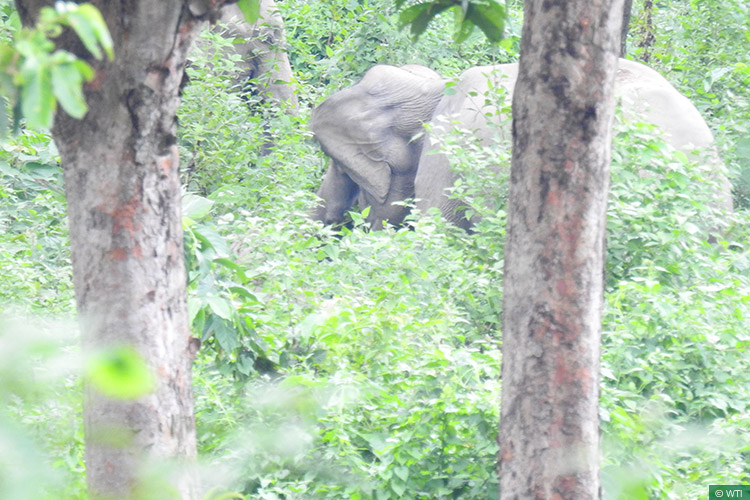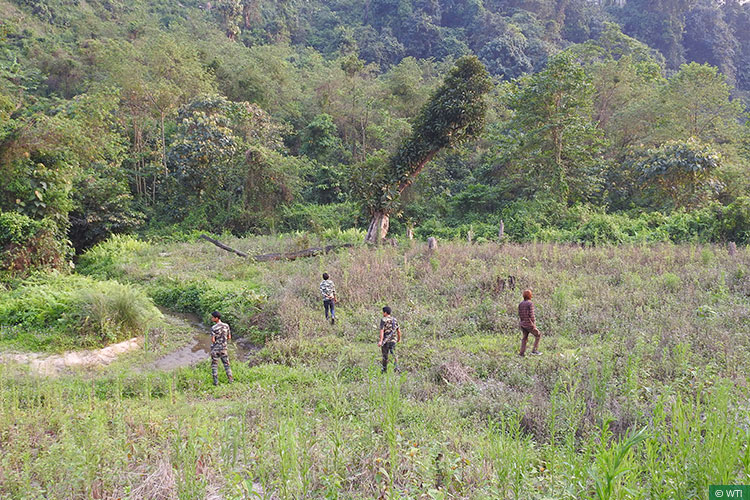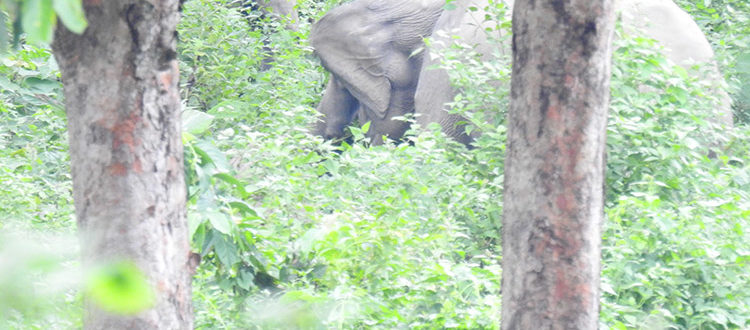RAP Helps Mitigate Human-Elephant Conflict in Villages near the Pakke-Doimara at Dadzu-Lumia Elephant Corridor in Arunachal
 WTI’s Rapid Action Project addressed heightened levels of Human-Elephant Conflict in the Tippi-Bhalukpong area
WTI’s Rapid Action Project addressed heightened levels of Human-Elephant Conflict in the Tippi-Bhalukpong area
Tippi, Arunachal Pradesh, June 27, 2017: A Rapid Action Project (RAP) initiated by Wildlife Trust of India’s (WTI) Wild Aid Division has helped mitigate Human-Elephant Conflict in the Tippi-Bhalukpong region of Arunachal Pradesh, and ensured the free movement of elephants through the critical Pakke-Doimara at Dadzu-Lumia Elephant Corridor (also known as the Dezzling Elephant Corridor) in the area. The RAP was conceived in collaboration with the Arunachal Pradesh Forest Department and involved a close engagement with select members of the local village communities.
Elephants are highly intelligent, long-ranging animals that follow traditional migratory routes, passed down from one generation to the next, to move between forested areas in search of food and water. With the destruction and fragmentation of wild habitats caused by India’s growing human population and escalating infrastructural development, however, elephants are increasingly being forced to move through human-use areas, causing an upsurge in Human-Elephant Conflict.
Elephant corridors form vital natural habitat linkages between larger forest patches and allow elephants to maintain genetic flow and offset seasonal variations in the availability of forage and water. To ensure the uninterrupted movement of elephants between key habitats and reduce conflict with humans, designated corridors must be legally secured and protected.
No loss of life or property has been recorded due to Human-Elephant Conflict since WTI’s Rapid Action Project was implemented in the area.
WTI has been working with other NGOs and state forest departments to protect the 101 elephant corridors that have been identified and mapped across India under its Right of Passage project. The project team has been visiting these corridors to review their status, and it was during one such visit to Arunachal that the growing instances of Human-Elephant Conflict in the Tippi-Bhalukpong area and villages adjacent to the Dezzling Corridor came to light.
The corridor is a critical linkage between the elephant habitats of Pakke Tiger Reserve and Doimara Reserve Forest. Elephants moving through the area had been entering human settlements in the nearby villages of Ramda, Khuppi and Kimi, causing damage to property (houses, parked vehicles, kitchen gardens etc) and posing a threat to human lives. As human-wildlife conflict can reduce local support for species conservation, urgent action was required.
Kime Rambia, Range Forest Officer, Tippi Wildlife Range, Pakke Tiger Reserve, had first brought the issue to WTI’s attention. In consultation with Mr Rambia and the forest department, WTI determined that since the forest staff working in the area was short of manpower and field equipment, their efforts could be augmented with the help of selected members of the local communities.
An RAP was thus initiated to involve local people who could aid in conflict mitigation, and provide them training on elephant behaviour and effective techniques of driving elephants away from human settlements. The patrolling teams thus formed were provided logistical support and essential equipment required for the proper conduct of their duties. Once they were trained, the teams, comprising four members each, were deployed to patrol the village boundaries in areas where conflict was most common.
 One of the patrolling teams formed under the RAP to mitigate Human-Elephant Conflict in the area
One of the patrolling teams formed under the RAP to mitigate Human-Elephant Conflict in the area
During the course of the project, the patrolling teams made three successful interventions including driving away a wild elephant that had been regularly raiding a granary in Tippi, and chasing a herd of five elephants away from another settlement and into Pakke Tiger Reserve. The teams monitored the area on a regular basis and no other conflict situation was reported. In fact, no loss of life or property has been recorded since the RAP was implemented.
“Earlier there was a lot of conflict between humans and elephants, with damage to property and a potential threat to both human and elephant lives”, said Kime Rambia. “It is heartening that WTI, the forest department and local communities were able to come together to tackle the situation effectively.”
Towards the end of the RAP’s duration, in a consultative meeting attended by the Divisional Forest Officer, Pakke Tiger Reserve, the RFOs of Shergaon Forest Divison and Khelling Forest Division, administrative officers and panchayat members, the importance of the Dezzling corridor was highlighted and WTI’s efforts to reduce conflict in the area underscored. A decision was consequently taken that for the conservation and sustenance of the corridor, a plantation drive would be conducted by the forest department in the degraded part of the corridor. About 800 saplings were planted and four daily-wage forest watchers assigned by the forest department to take care of the saplings.









